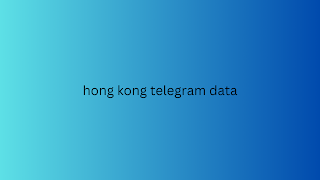The walls of Facebook
Posted: Sat Dec 21, 2024 4:19 am
Biotech, 5G, smart workspace, blockchain or connected homes: which technologies can we expect to become mainstream and important for companies in the coming years? And which trends do the technologies deliver? Gartner is once again publishing a new version of the annual Hype Cycle for Emerging Technologies .
What if multiple functions were combined into one app? Chatting, transferring money to friends after a dinner or ordering a pizza… We have an app for every task. Within three clicks you can switch from Tikkie to Thuisbezorgd and from Facebook to WhatsApp. But what if those three clicks are no longer necessary? Then you speak of a walled garden .
An impressive castle with a fantastic enclosed garden full of exotic flowers, and footmen who provide you with everything your heart desires. I used to dream of this princess life, where I am served at my beck and call. If we are to believe trend watchers, this 'ideal image' will soon be a reality. You are provided with everything from your easy chair. All you need is a smartphone.
Algorithms and advertising
A walled garden is a browsing environment that controls the user's access to content. These types of platforms are mainly found on mobile devices such as smartphones or tablets. Examples include social media such as Facebook and the Chinese WeChat or – to a lesser extent – search engines such as Google . The content that users see is determined by algorithms and advertisements. As a result, we are all in a filter bubble .
Facebook, for example, tries to keep its users on the hong kong telegram data platform as long as possible. The company is constantly building higher and higher its proverbial 'walls' that give access to other content platforms. All to increase the time spent and prevent users from leaving the platform. The longer mobile users stay within the app to view content, the more data can be collected. In this way, Facebook learns more and more about its users, which in turn leads to an increase in the sale of suitable advertisements to companies.

You can imagine that clicking through to other platforms or third-party content is not stimulated from a platform like Facebook. A video uploaded there will perform better and appear more often in the timeline of users than a video that refers to Youtube for example . Such a referral ensures that the user leaves the original platform (in this case: Facebook). In this way, the walled garden loses one of its data sources.
One app fits all
The Facebook example illustrates the impact and thinking behind a walled garden. However, the best example of a walled garden is the platform WeChat, which stands head and shoulders above the rest when it comes to the aforementioned filter bubble. The app is such a closed environment that it is possible for users to control 'everything' from WeChat.
What if multiple functions were combined into one app? Chatting, transferring money to friends after a dinner or ordering a pizza… We have an app for every task. Within three clicks you can switch from Tikkie to Thuisbezorgd and from Facebook to WhatsApp. But what if those three clicks are no longer necessary? Then you speak of a walled garden .
An impressive castle with a fantastic enclosed garden full of exotic flowers, and footmen who provide you with everything your heart desires. I used to dream of this princess life, where I am served at my beck and call. If we are to believe trend watchers, this 'ideal image' will soon be a reality. You are provided with everything from your easy chair. All you need is a smartphone.
Algorithms and advertising
A walled garden is a browsing environment that controls the user's access to content. These types of platforms are mainly found on mobile devices such as smartphones or tablets. Examples include social media such as Facebook and the Chinese WeChat or – to a lesser extent – search engines such as Google . The content that users see is determined by algorithms and advertisements. As a result, we are all in a filter bubble .
Facebook, for example, tries to keep its users on the hong kong telegram data platform as long as possible. The company is constantly building higher and higher its proverbial 'walls' that give access to other content platforms. All to increase the time spent and prevent users from leaving the platform. The longer mobile users stay within the app to view content, the more data can be collected. In this way, Facebook learns more and more about its users, which in turn leads to an increase in the sale of suitable advertisements to companies.

You can imagine that clicking through to other platforms or third-party content is not stimulated from a platform like Facebook. A video uploaded there will perform better and appear more often in the timeline of users than a video that refers to Youtube for example . Such a referral ensures that the user leaves the original platform (in this case: Facebook). In this way, the walled garden loses one of its data sources.
One app fits all
The Facebook example illustrates the impact and thinking behind a walled garden. However, the best example of a walled garden is the platform WeChat, which stands head and shoulders above the rest when it comes to the aforementioned filter bubble. The app is such a closed environment that it is possible for users to control 'everything' from WeChat.